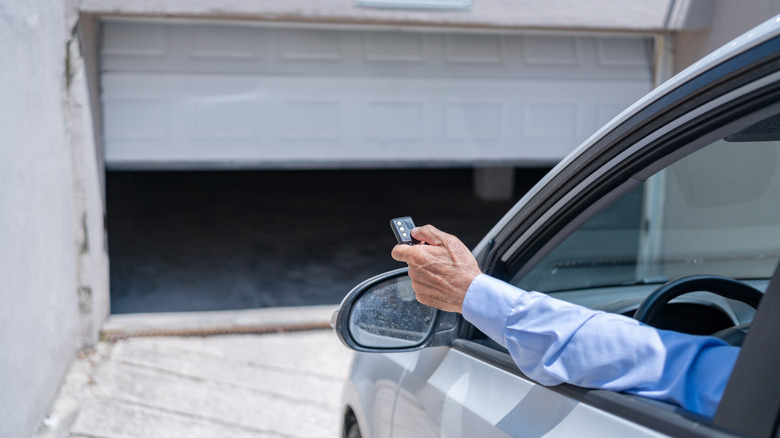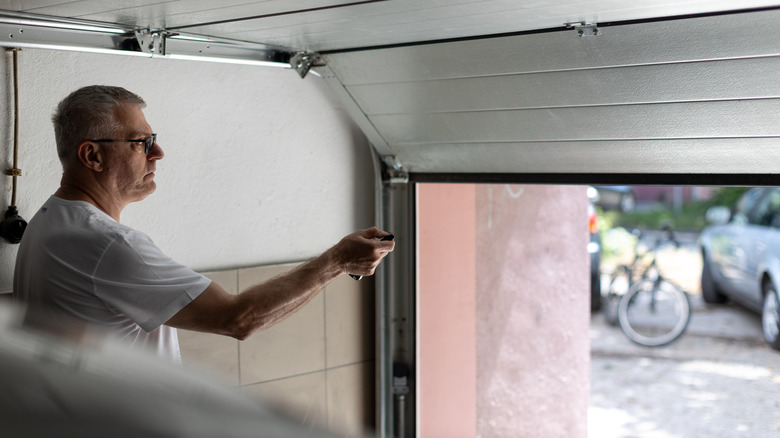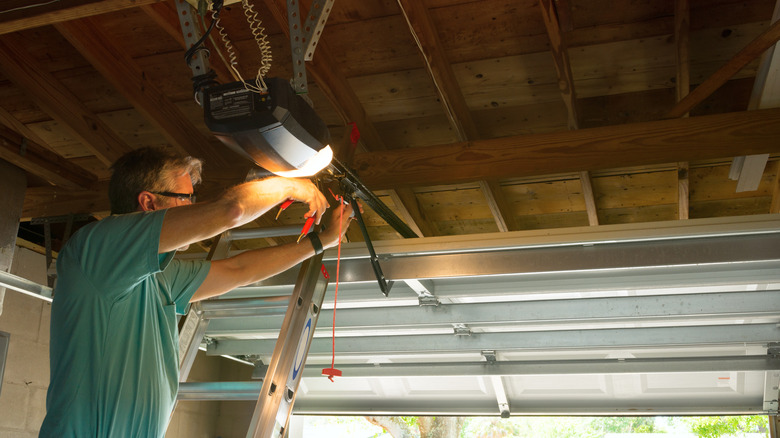Your Outdated Garage Door Opener Is Making Your Home More Vulnerable To Break-Ins
We may receive a commission on purchases made from links.
For many homeowners, their security routine looks something like this: Doors locked? Check. Window latches secured? Check. Garage door down after you back out into the driveway? Check.
But your trusty old garage door opener might not be as secure as you think. Garage door openers that use a static code, as is common in older devices, leave homes vulnerable to burglars' top two methods: a brute-force attack, which uses a device to send tons of codes toward your door opener until they eventually hit the right one, or Open Sesame, which uses a modified children's toy to crack your code in seconds.
In an effort to make garages more secure, many door openers produced after 1993 are equipped with rolling code technology. Instead of using the same code to open your garage, this tech randomly selects a new code from over 4 billion combinations each time you secure your door, helping protect you from break-ins. Ensuring your device uses rolling codes to communicate between the door unit and your remote is crucial for shoring up your garage's burglary defenses.
How to tell if your garage door opener is truly secure
There are a few ways to boost your garage's security, but the best is ensuring your door opener has rolling code technology. If you have it handy, check the door opener's manual to see if it uses a rolling or fixed code. No manual? Find the device's model number and look it up online. You can also check the back of the remote for a "rolling code" label. If it doesn't have one, you most likely have a static code opener.
If you're considering upgrading your garage door opener, look for options that use Security+2.0. Chamberlain garage door openers are consistently rated 4 stars and up on the Home Depot website, making them worth checking out. Genie is also often highly rated, but some Home Depot reviews do mention that the design can be faulty.
For additional and inexpensive home security, consider purchasing a smart garage door opener. Most of these use rolling code technology, plus they'll notify you if your garage door opens or closes. You can even control the door with your phone. MyQ is a popular app and comes standard with many Chamberlain and Liftmaster garage door openers.
Garage security tips every homeowner needs to know
There are a few simple but effective security measures you can take to lower your risk of garage break-ins. First, don't keep your garage door remote in your car or in the garage. If you must keep it in your car when running errands, keep it tucked out of sight. In a burglar's hands, this remote is a free pass into your garage and, by extension, your home. Instead, use a keychain remote. This lowers your chances of losing your remote and boosts your security all at once.
Next, take a look at your garage door's emergency release. Burglars can use a wire to reach up and snag the red cord, triggering it to open with a quick pull. You can either remove the red plastic handle at the end of the cord, making it harder to activate from the outside, or put a zip tie on your garage door by threading it through the small hole in the release mechanism. Pick a thinner zip tie so you can still open the door in case of an emergency.
If you upgrade to a smart garage door opener, make sure to only use the app with a trusted internet connection, use a strong password and update it often, and keep your software current. Multi-factor authentication is a great additional security feature that ensures you — and only you — can access the app.


